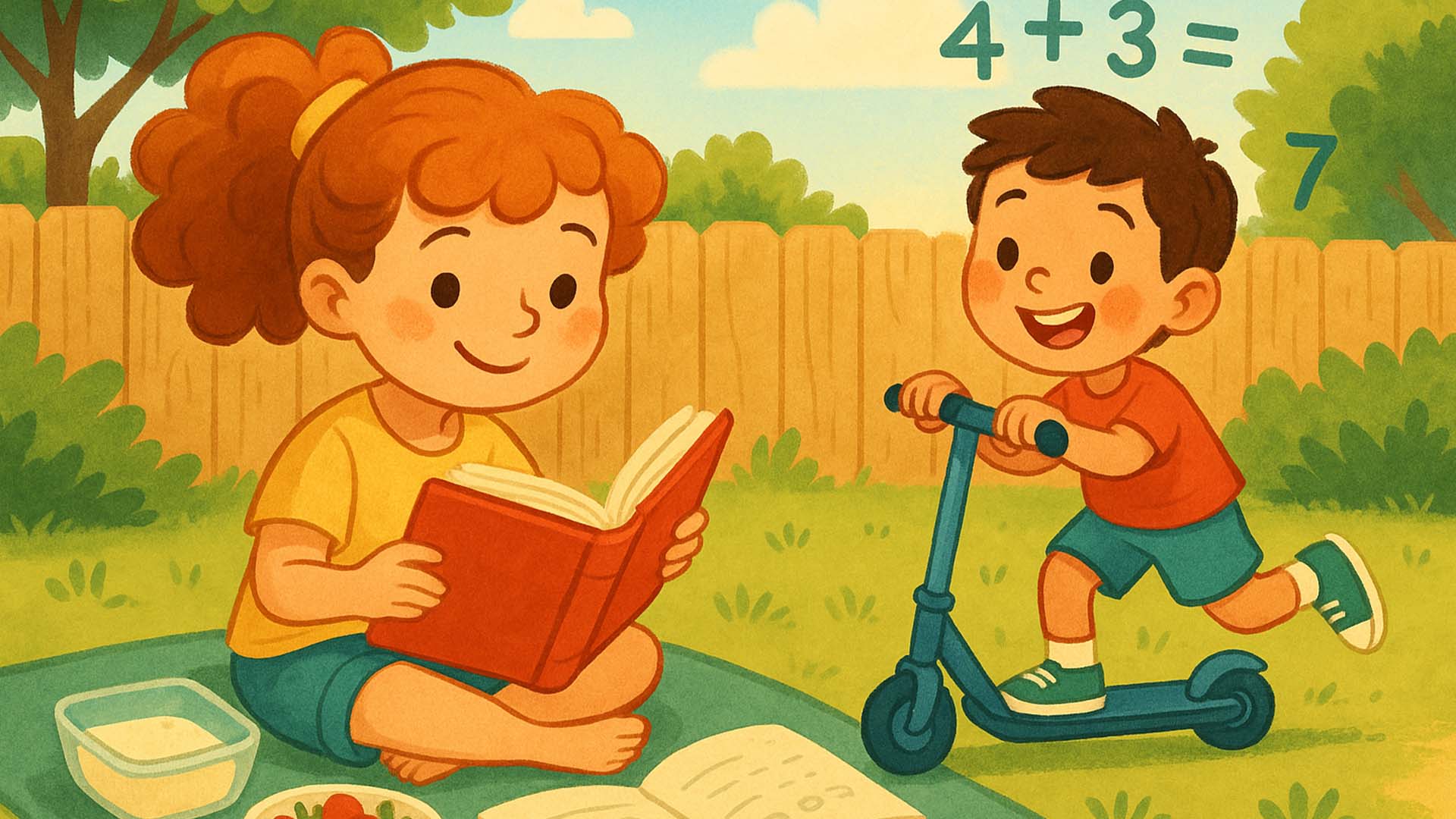Summer break is fun, but learning fades fast—kids may lose nearly 28% of reading gains and 34% in math over the break. Yet this summer slide isn’t inevitable. By weaving small activities into daily life—like bedtime reading, breakfast math puzzles, and scooter-counting games—families can maintain academic progress while having fun together.
Why It Matters
Without practice, reading comprehension and numeracy skills can fall behind, affecting confidence and widening achievement gaps.
Easy Daily Strategies
- 20-Minute Reading Time: Choose fiction or non-fiction based on the child’s interest.
- Math with Breakfast: Count berries or measure milk in fractions.
- Playful Math Games: Card tricks, dice games, or scavenger hunts with numbers.
- Library & Community Events: Visit weekly for storytelling or craft themes.
- Real-World Math: Budgeting pocket money or cooking with measurements.
Benefits
- Academic Retention: Keeps reading and math skills fresh and ready.
- Confidence Boost: Regular wins build self-esteem and readiness.
- Balanced Routine: Combines learning, play, and rest.
Conclusion
Preventing the summer slide is about consistency, not rigor. Small, joyful learning habits keep children engaged and confident. With books, games, and daily routines, summer becomes a season of growth—not regression.
Q&A Section
Q1: What if my child dislikes reading?
A1: Try graphic novels, audiobooks, or comic-style magazines. Follow their interests to spark engagement.
Q2: Can math games be too simple?
A2: Start easy and adjust—add counting change, timing rounds, or tracking scores to match growth.
Sources:
- Parents.com on preventing summer slide artfulparent.com+1parents.highlights.com+1parents.highlights.com+15parents.com+15reddit.com+15
- Scientific American on recovery from learning loss scientificamerican.com








0 Comments